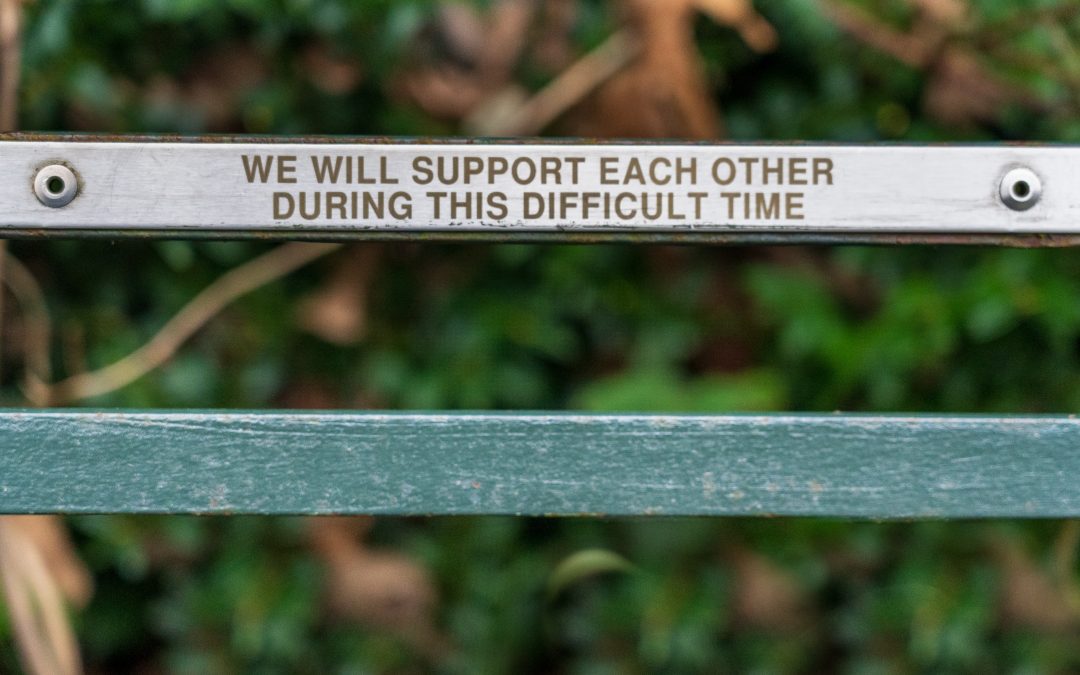

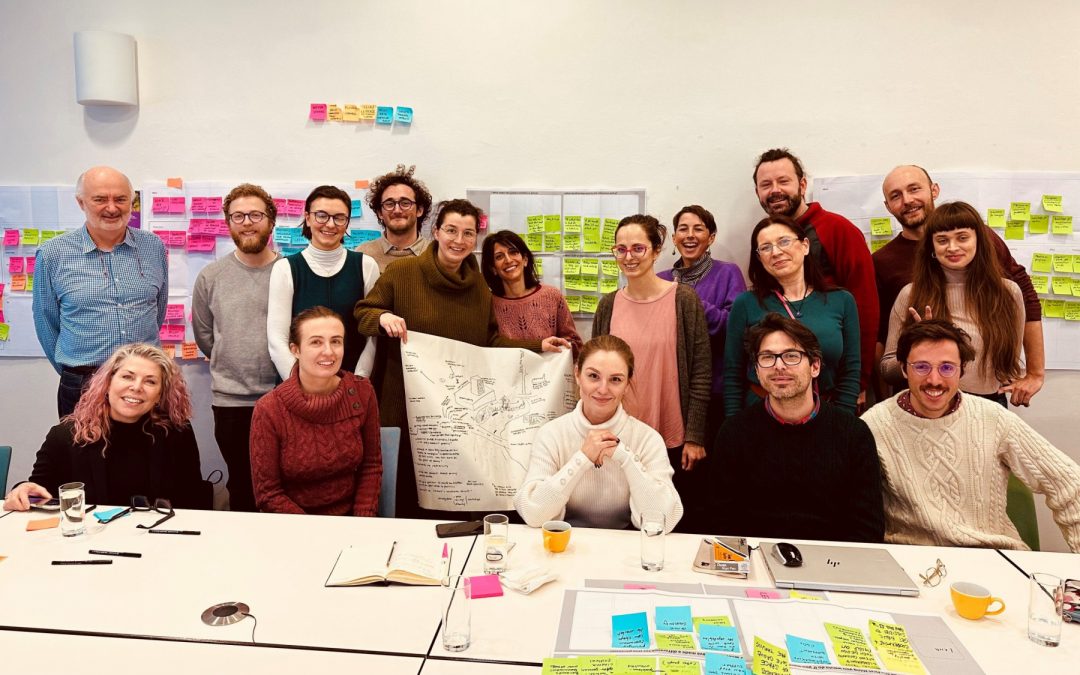
Better is Possible: RESISTIRÉ holds its final set of Open Studios
The RESISTIRÉ project is designed to be participatory. Each of the three cycles that make up the project starts with in-depth research, leading to a collaborative elaboration of solutions during the Open Studios and culminating with the development of operational...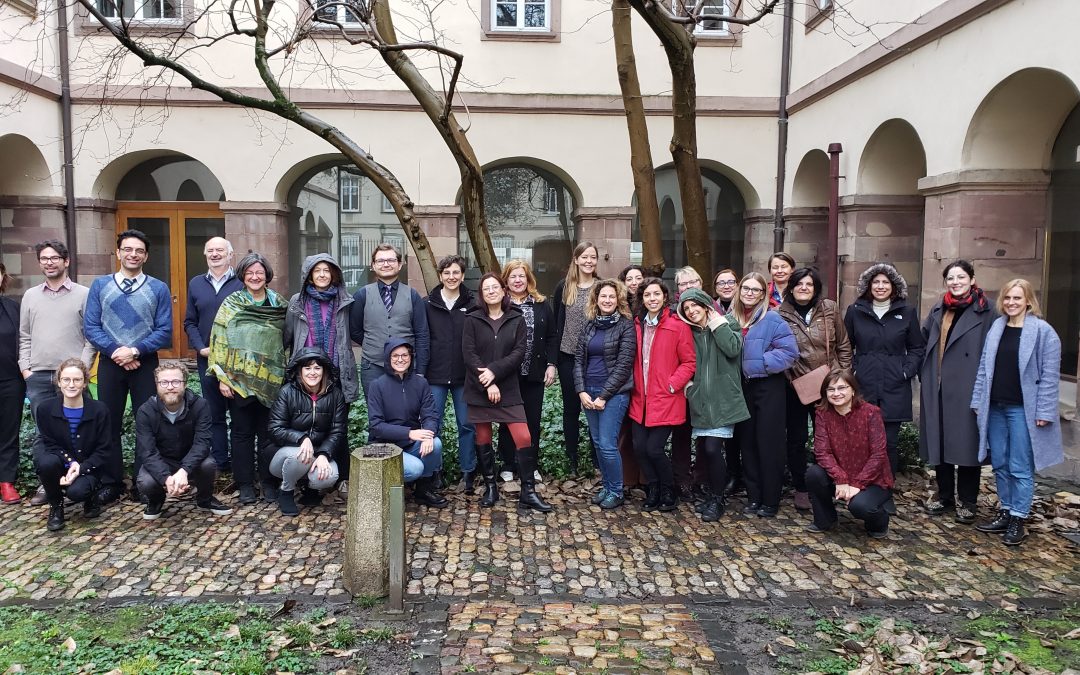
RESISTIRÉ project meeting: Defining next steps
RESISTIRÉ partners gathered for the second time in person for a set of meetings hosted at the European Science Foundation in Strasbourg. During two days, the project team discussed the next steps for RESISTIRÉ, including future outputs, co-creation activities and...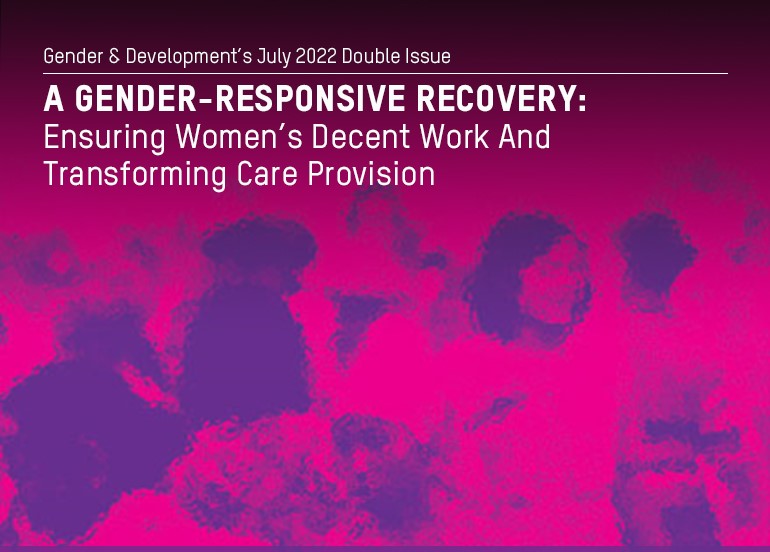
Better stories for a gender equal and fairer social recovery from outbreaks: learnings from the RESISTIRÉ project
This paper explores learnings from the RESISTIRÉ project and shares inspiring Better Stories related to care that have emerged during the COVID-19 pandemic.
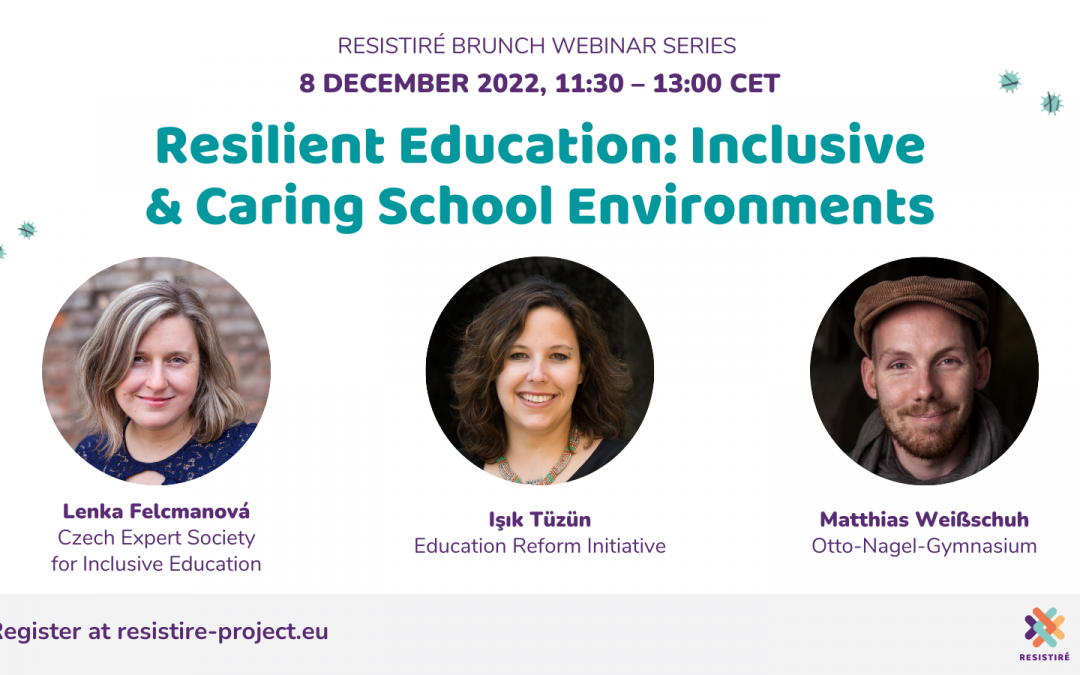
Webinar: how to build more resilient education environments
During this webinar we will discuss how to build a more inclusive and caring school environment, look into the prerequisites of educational resilience to crisis and discover some promising practices to promote equity in education.
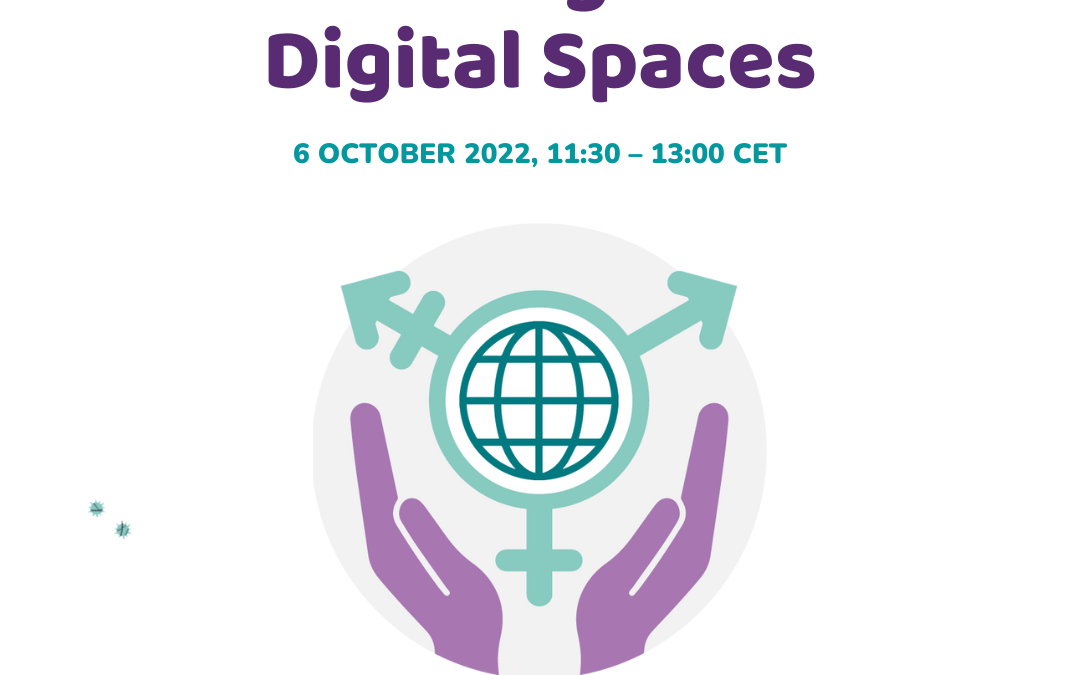
Webinar on Creating Safe Digital Spaces
Creating Safe Digital Spaces webinar Watch the recording now In a crisis situation such as the recent pandemic, digital technology can mitigate or even solve many challenges. However, at the same time, the ever-growing importance of the internet and its dynamic...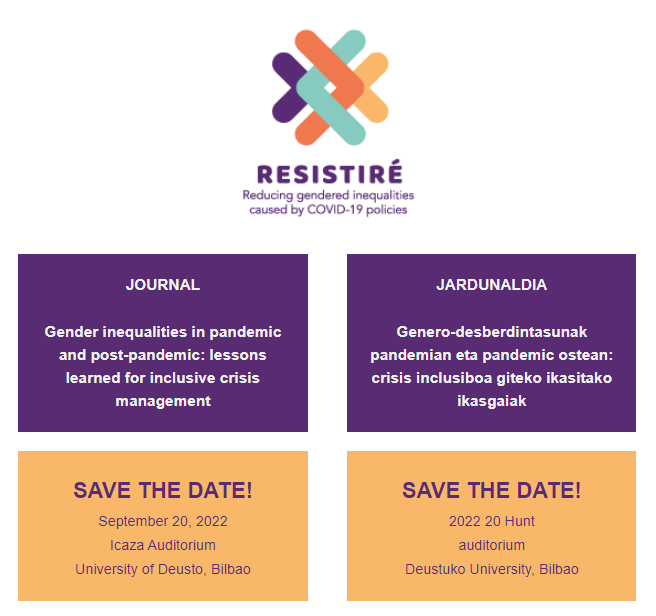
Gender inequalities in pandemic and post-pandemic: lessons learned for inclusive crisis management
SAVE THE DATE! 20 September 2022 Icaza AuditoriumUniversity of Deusto, Bilbao RESISTIRÉ is organising a conference at the University of Deusto to discuss the challenges and lessons learned during the COVID-19 pandemic. RESISTIRÉ partners will present highlights...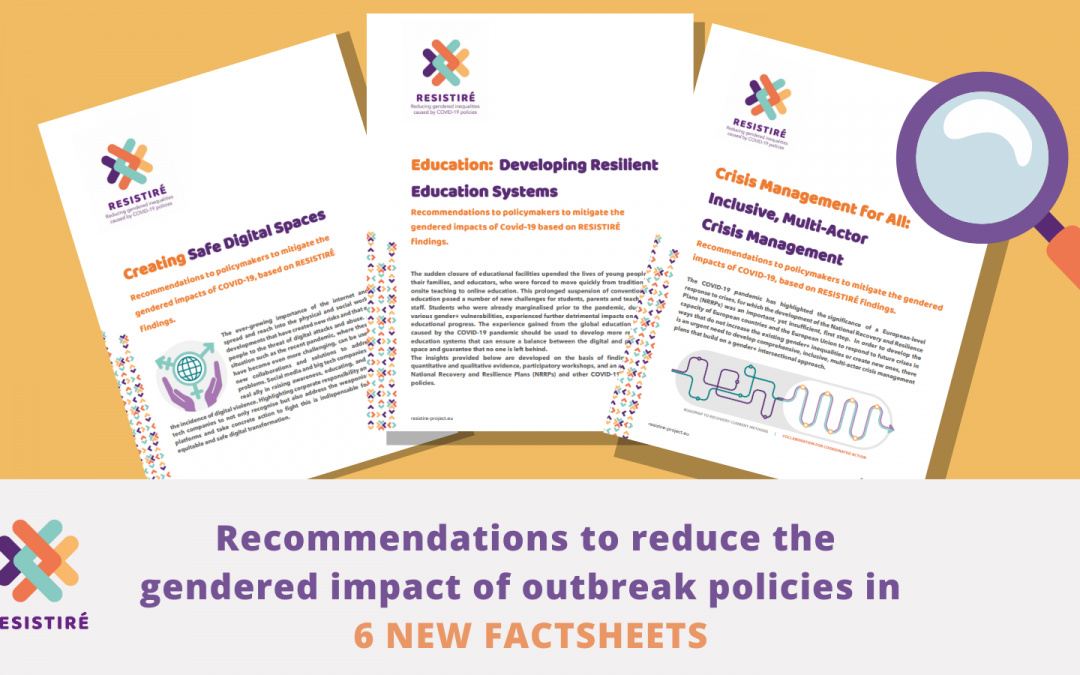
Reducing the gendered impact of outbreak policies: 6 new factsheets
How have the policy responses to Covid-19 increased gender inequalities? What can policymakers, employers or even civil society organisations do to mitigate the impact of outbreak policies? Following its second research cycle, RESISTIRÉ is releasing a new set of 6...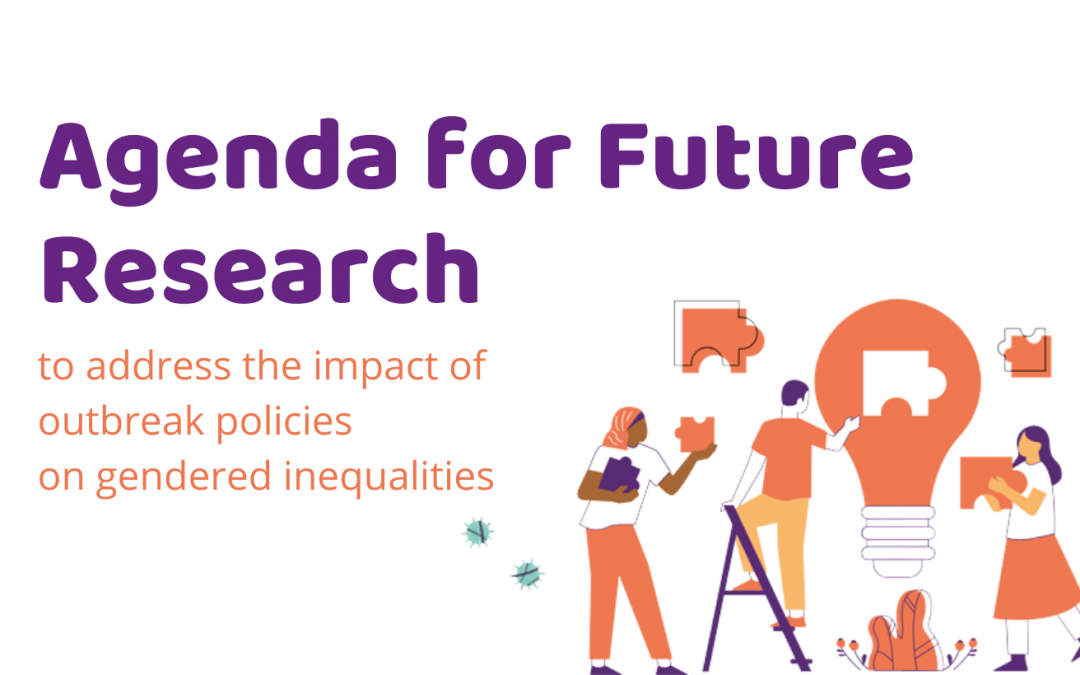
Research Agendas – Cycle 2: identifying knowledge gaps and future research needs
The aim of RESISTIRÉ is to understand the social, economic, political, and environmental impacts of the COVID-19 outbreak and its policy responses on existing inequalities and to work towards individual and societal resilience. The results of the project’s research...
RESISTIRÉ’s new call for pilot projects is now open
RESISTIRÉ is making a difference! We’re funding a selection of pilot projects to reduce the gender+ inequalities due to the Covid pandemic in two domains: Education and Gender-based Violence. EDUCATION CARE FAIR – a school-based wellbeing event RESISTIRÉ...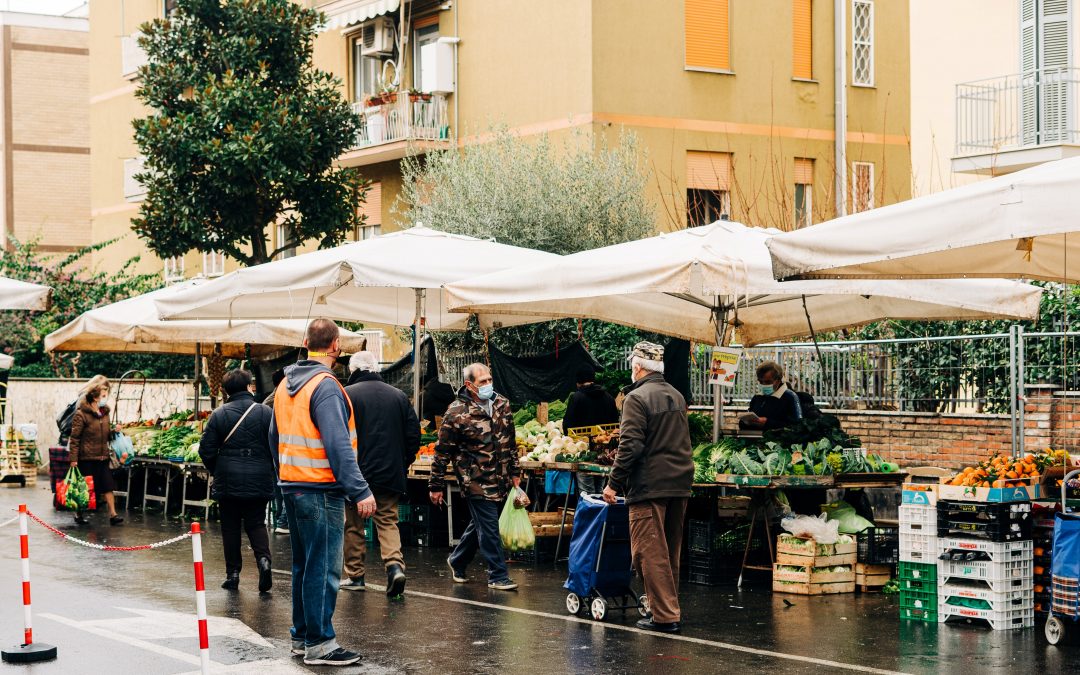
Building back better? Identifying enablers and obstacles towards a post-COVID recovery
The aim of RESISTIRÉ is to understand the unequal impacts of the COVID-19 outbreak and its policy responses on behavioural, social and economic inequalities in 31 countries (EU 27 plus Iceland, UK, Serbia and Turkey) to better prevent them. In this report,...
